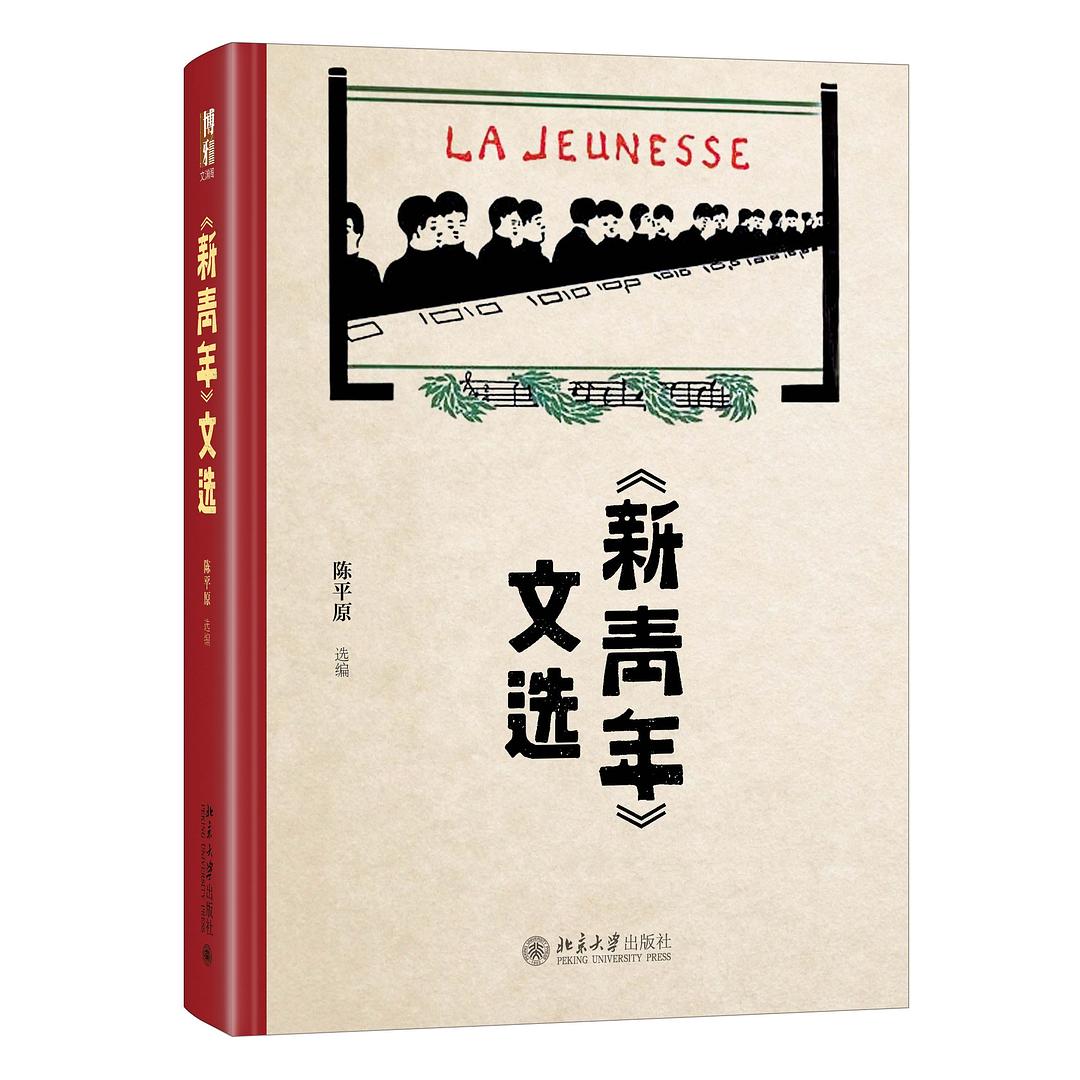WULOLIFE
《新青年》文选 作者: 陈平原 出版社: 北京大学出版社 丛书: 博雅文渊阁
《新青年》文选 作者: 陈平原 出版社: 北京大学出版社 丛书: 博雅文渊阁
Sale
Sold out
Regular price
€28,00 EUR
Regular price
Sale price
€28,00 EUR
Unit price
per
Tax included.
Shipping calculated at checkout.
Couldn't load pickup availability
Description
内容简介 · · · · · ·
《〈新青年〉文选》是由陈平原教授编选的《新青年》文章的合集,本书的特色在于:一,将思想史视野与文学史意义重叠起来,确立新的阅读及阐释标准; 二,坚信“议政”“述学”之文,同样也可以是“具有文学性”的好文章;三,作为一项共同参与的事业,《新青年》同人的整体形象,必须得到完整的呈现;四,既按文体分类,以便读者欣赏,又隐含着“史”的线索及编者的价值判断;五,尽量尊重那代人的选择,不做无谓的变更,尤其在标点符号及个别词汇妄加添改。
作者简介 · · · · · ·
广东潮州人,文学博士,北京大学博雅讲席教授(2008—2 012年任北大中文系主任)、教育部“长江学者”特聘教授、中央文史中国语言文学学科评议组成员。先后出版《中国小说叙事模式的转变》《中国现代小说的起点》《千古文人侠客梦》《中国散文小说史》《从文人之文到学者之文》《中国现代学术之建立》《触摸历史与进入五四》《作为学科的文学史》《图像晚清》《左图右史与西学东渐》《当代中国人文观察》《老北大的故事》《大学何为》《抗战烽火中的中国大学》《作为一种思想操练的五四》等著作三十余种。
目录 · · · · · ·
导读:思想史视野中的文学陈平原论文文学改良刍议胡适文学革命论陈独秀我之改良文学观方孝岳我之文学改良观刘半农文学革新申义傅斯年北京大学征集全国近世歌谣简章建设的文学革命论胡适论短篇小说胡适人的文学周作人白话文的价值朱希祖思想革命仲密文学研究会宣言周作人等述学敬告青年陈独秀青年与工具吴稚晖经济学之总原则章士钊以美育代宗教说蔡元培近世三大政治思想之变迁高一涵女子问题陶履恭读武者小路君所作《一个青年的梦》周作人偶像破坏论陈独秀庶民的胜利李大钊“作揖主义”刘半农本志罪案之答辩书陈独秀我们现在怎样做父亲唐俟吃人与礼教吴虞什么是科学方法?王星拱随感随感录一独秀随感录五孟和随感录十三独秀随感录十七玄同随感录二五唐俟随感录二九玄同随感录三○玄同随感录三五唐俟随感录三六唐俟随感录三七鲁迅随感录三八鲁迅随感录三九唐俟随感录四一唐俟随感录四三鲁迅随感录四六唐俟随感录四八唐俟随感录五○玄同随感录五一玄同随感录五五玄同随感录五六“来了”唐俟随感录五七现在的屠杀者唐俟随感录六五暴君的臣民唐俟随感录七一调和论与旧道德独秀随感录七五新出版物独秀随感录八三解放独秀随感录一一七青年底误会独秀随感录一二一过渡与造桥独秀新诗朋友胡适鸽子胡适鸽子沈尹默人力车夫沈尹默人力车夫胡适相隔一层纸刘半农月夜沈尹默除夕沈尹默除夕胡适丁巳除夕歌陈独秀除夕刘半农梦唐俟爱之神唐俟三弦沈尹默山中即景李大钊香山早起作,寄城里的朋友们。沈兼士小河周作人爱与憎周作人白杨树沈尹默庐山纪游康白情登香港太平山刘复绍兴西郭门的半夜俞平伯儿歌周作人十一月二十四夜胡适稻棚刘复过去的生命周作人山居杂诗周作人希望胡适竹叶汪静之小说碎簪记苏曼殊狂人日记鲁迅孔乙己鲁迅药鲁迅风波鲁迅小雨点陈衡哲波儿陈Video信通信胡适独秀通信程演生独秀通信钱玄同独秀通信钱玄同独秀通信刘半农独秀通信钱玄同独秀论小说及白话韵文胡适钱玄同论汉字索引制及西洋文学林玉堂钱玄同新文学及中国旧戏张厚载胡适钱玄同刘半农独秀新文学问题之讨论朱经农胡适任鸿隽钱玄同论中国旧戏之应废周作人钱玄同白话诗的三大条件俞平伯胡适
